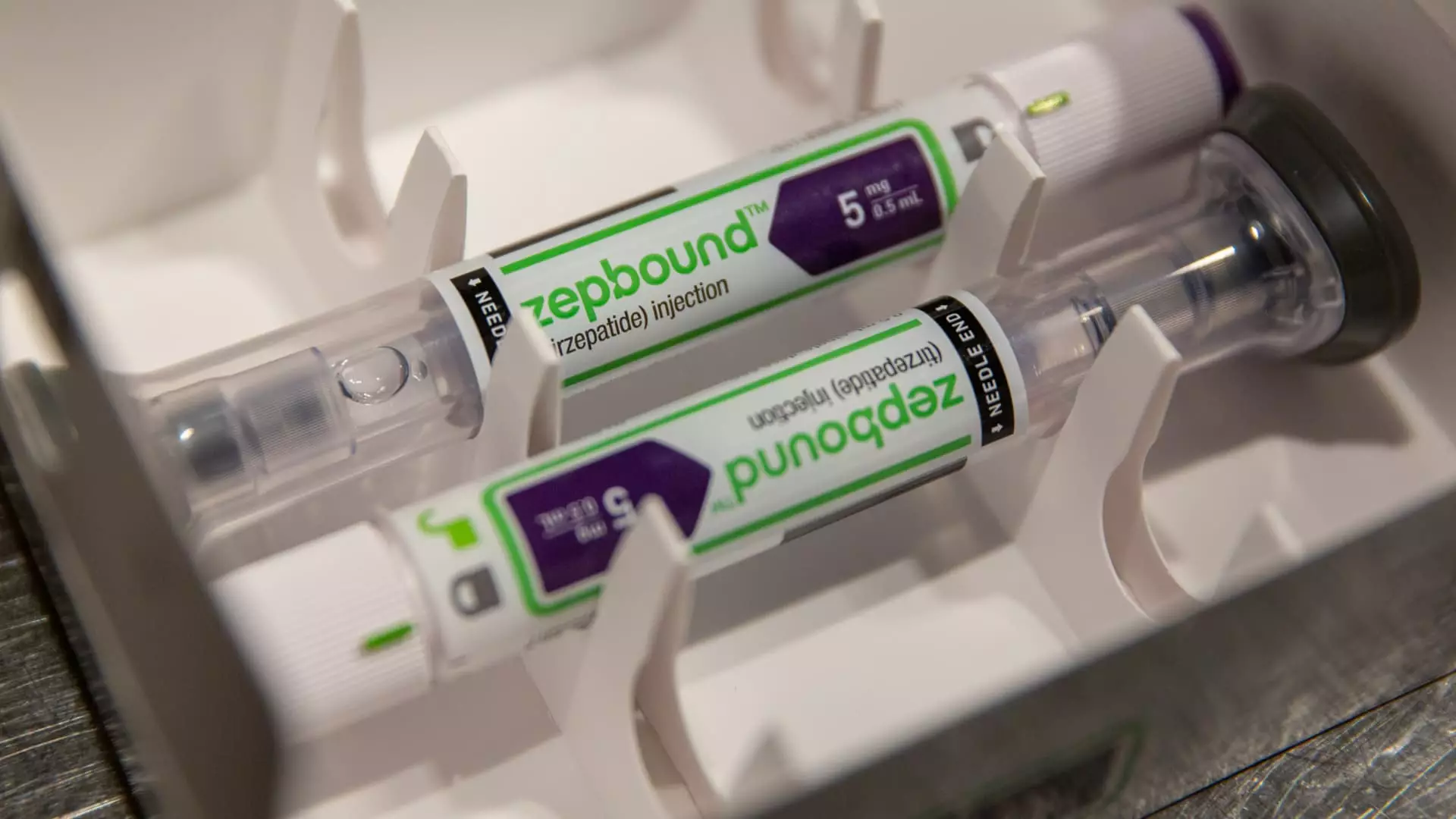Eli Lilly’s weight loss drug, Zepbound, has recently shown promising results in patients with a common type of heart failure and obesity. The late-stage trial data released by the company indicate that Zepbound may have health benefits beyond weight loss and blood sugar regulation. This could potentially lead to broader insurance coverage for this type of treatment.
According to the study findings, patients who took Zepbound were 38% less likely to be hospitalized or die due to heart complications compared to those who received a placebo. Additionally, these patients were less likely to need to increase their heart failure medication. Zepbound also significantly improved heart failure symptoms and physical limitations in the patients who participated in the trial.
The trial followed over 700 patients with heart failure with preserved ejection fraction (HFpEF) and obesity, with some patients also having diabetes. HFpEF is a condition where the heart is unable to pump enough blood to meet the body’s needs. It is associated with a high burden of symptoms and physical limitations that can impact a patient’s daily life.
The results of the trial are significant considering that roughly 6.7 million adults in the U.S. aged 20 and above have heart failure. Eli Lilly estimates that HFpEF accounts for almost half of all heart failure cases, with nearly 60% of affected patients also having obesity. This highlights the potential impact of Zepbound in treating a large patient population.
The safety data on Zepbound from the trial was consistent with previous studies on the drug. The most common side effects reported were gastrointestinal, such as nausea and diarrhea, and were generally mild to moderate in severity. This information will be important for healthcare providers and patients considering the use of Zepbound.
Eli Lilly’s main competitor in the GLP-1 market, Novo Nordisk, is also exploring the use of weight loss drugs for treating patients with HFpEF. Novo Nordisk has already submitted an application for its drug Wegovy, which has been approved for reducing the risk of serious heart complications. Both companies are also studying their drugs in patients with chronic kidney disease and fatty liver disease.
GLP-1 drugs like Zepbound work by mimicking hormones produced in the gut to suppress appetite and regulate blood sugar. Zepbound targets both the GLP-1 and GIP hormone receptors, while Wegovy targets only the GLP-1 receptor. This dual mechanism of action could offer unique benefits for patients with heart failure and obesity.
The promising results from the trial of Eli Lilly’s Zepbound indicate a potential breakthrough in the treatment of heart failure in patients with obesity. The additional health benefits observed beyond weight loss and blood sugar regulation highlight the importance of further research in this area. With more data expected to be presented at medical meetings and published in peer-reviewed journals, the future looks bright for Zepbound as a potential treatment option for patients with HFpEF.

Leave a Reply